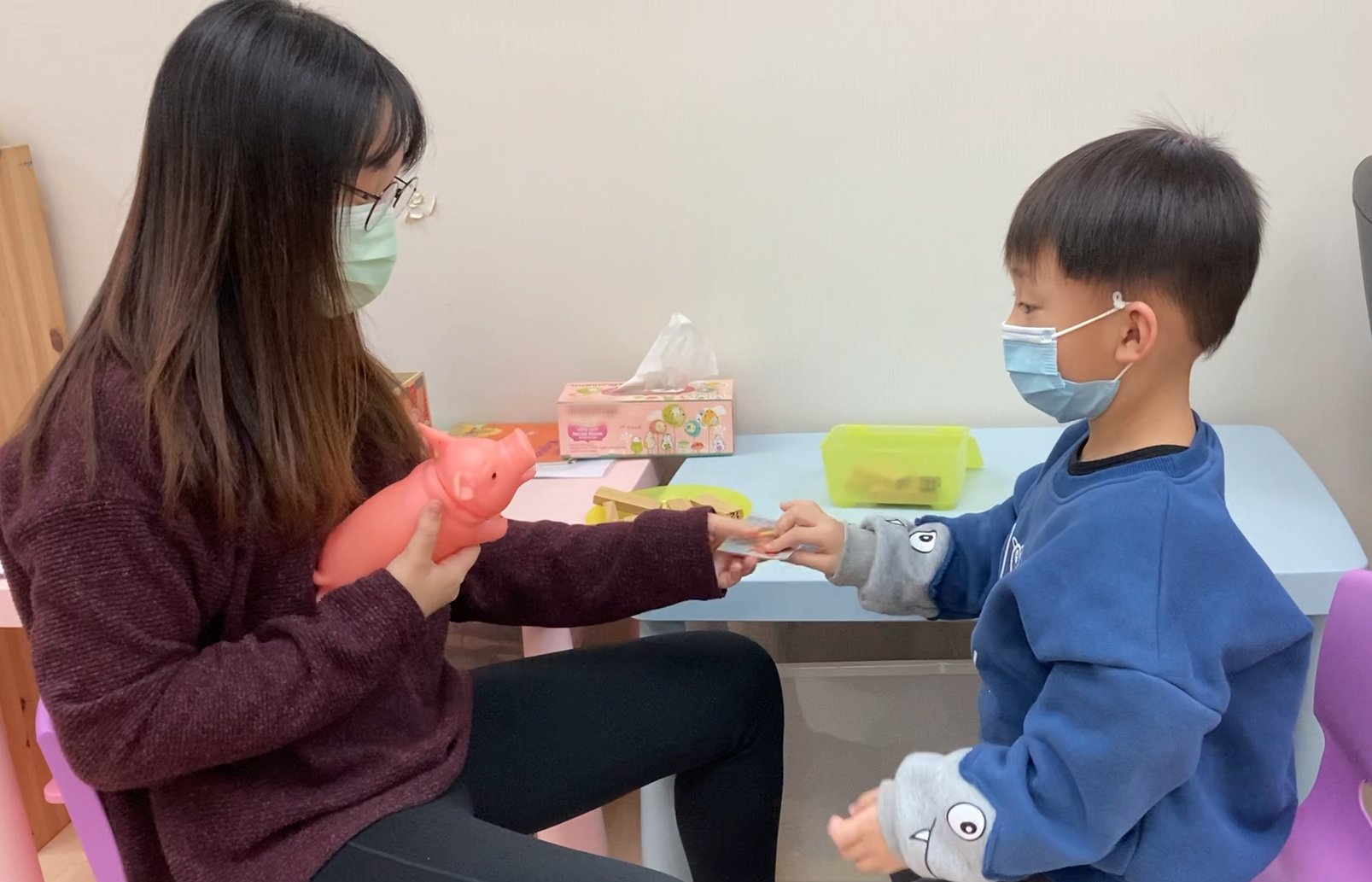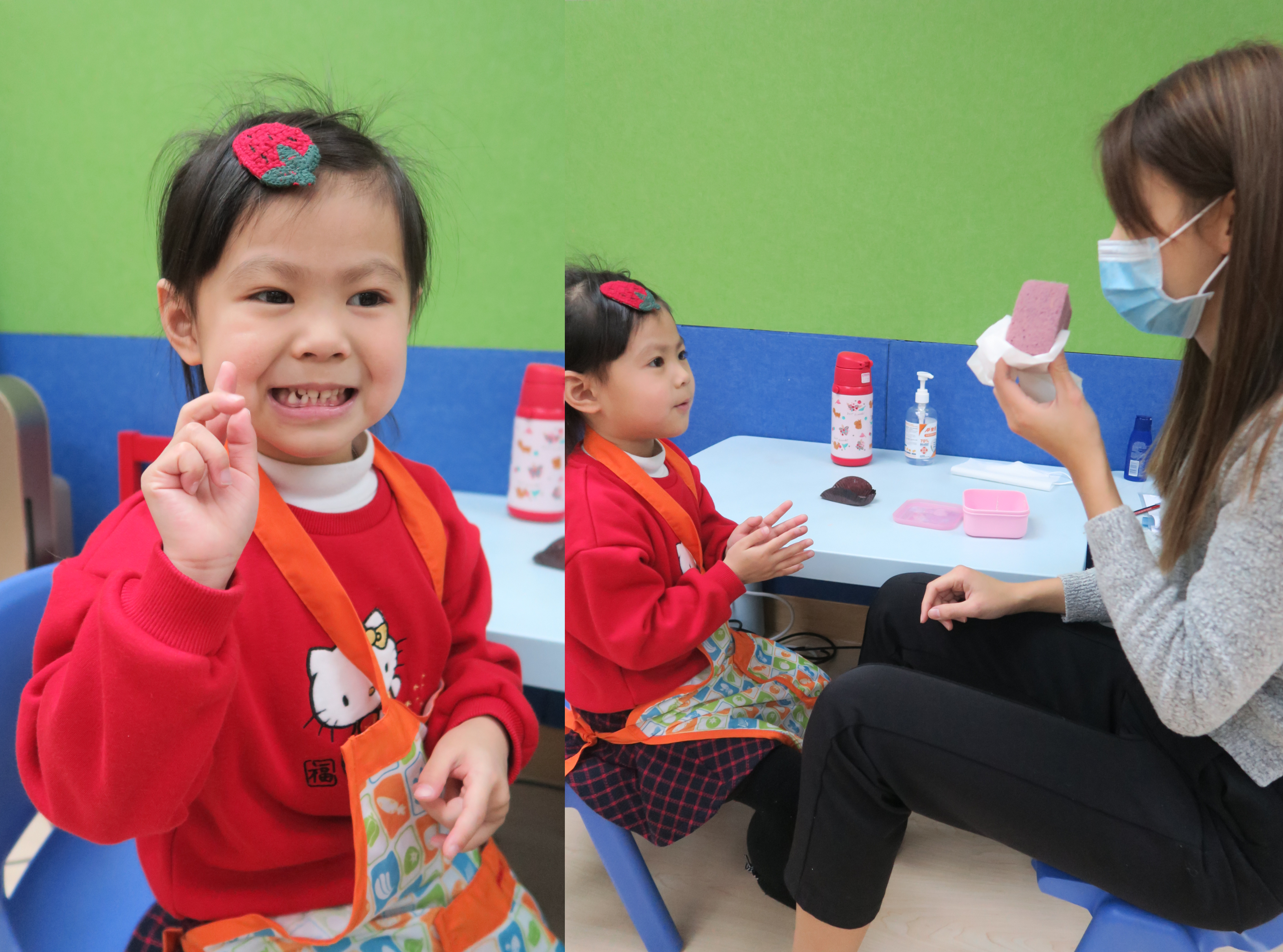Autism Partnership Foundation
Charitable Organization
Charitable Organization
Together We Create a Better World for People with Autism
“Diary writing”
Many people have a habit of writing diaries in childhood. After observing Chun Ka’s training, we can see that recall skills can be trained through diary writing. Our therapist first asked Chun Ka, “What classes did you take today?” Chun Ka recalled and described, then the therapist guided him how to organise sentences. With the help from the therapist, Chun Ka wrote in his diary, “I took classes of staying calm and following rules today. I felt very happy.” He practised writing a diary with our therapist every day and gradually improved his ability to retell events from the days.
“Staying calm while learning”
Many children with autism have temper tantrums when their needs are not being met, which affects their learning progress. In the early stage of treatment, Wing Lok would cry and scream when his toy was taken away. The therapist therefore focused on helping Wing Lok stay calm first. When Wing Lok was able to stay calm, the therapist could carry out other training with him smoothly such as learning classification. Wing Lok has better self-control ability after the treatment. He can now sit in class nicely and describe a situation and respond to questions by using long sentences.
“Expressing needs by using picture cards”
Kargo could not imitate sounds and did not know how to express his needs, so he frequently lost his temper. To enhance Kargo’s spontaneous communication, our therapist taught him matching objects with picture cards, so that he could tell us the toys he wanted to play with by showing picture cards. Our therapist later reduced the use of cards and taught Kargo to point his finger at what he wanted. At the end of the treatment, Kargo’s expressive skills have been greatly improved. He has even started to imitate mouth shapes and sounds.

“I don’t want the therapist to leave…”
Chung was a little boy who was dependent on adults. At the beginning of his treatment, when our therapist left Chung’s sight, Chung would cry loudly. The therapist used a visual timer to set a time and taught Chung to keep calm during separation. Chung could easily know when the therapist would return by looking at the timer. The therapist gradually increased the time of separation. Chung could play with his toys alone or sit in his seat calmly while waiting for the therapist gradually.
“Treasure every opportunity to practise”
On this day, Ying was enjoying her snack. When we walked near her to take a photo for her, she immediately made a pose. However, she did not look at the camera. The therapist revealed that Ying’s eye contact was weak and would always look away at other places. The therapist therefore seized every opportunity to practise eye contact with Ying even during snack time. The therapist led Ying to look at her by intentionally holding a piece of cake without any movement. Ying naturally looked at the therapist and spontaneously make a request, “I want to eat the cake!”

“I want the car!”
Nam could not sit nicely at the beginning of his treatment. He would even kick and scream furiously. The therapist used Nam’s favourite toy cars to teach him to sit nicely and keep quiet. Nam could gradually control his behaviours. The therapist then taught Nam to use language to express his needs by creating various opportunities for him to initiate communication. After a series of training, Nam was able to sit well and ask for toy cars by actively saying “I want the car!” when he was playing with the therapist.
Chun Ka, Wing Lok, Kargo, Chung, Ying and Nam were invited to present their experience in receiving ABA services with Autism Partnership Foundation (operating in Hong Kong) (APF, HK). Chun Ka, Wing Lok, Kargo, Chung, Ying and Nam are past beneficiaries of APF, HK.